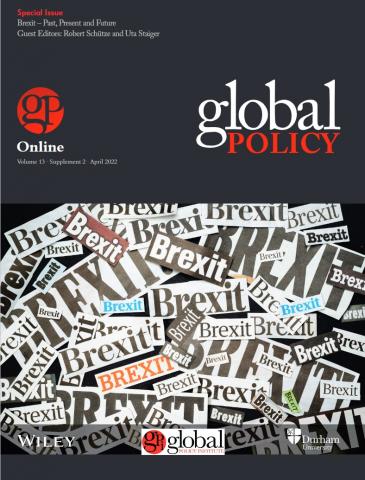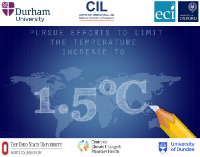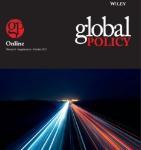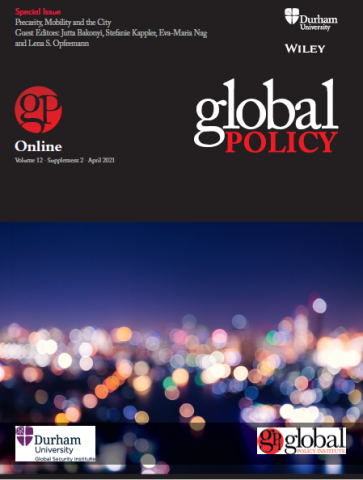Completed Projects
Recent events:
The Rise and Fall of Authoritarian Populist Parties
By Prof. Dr. Michael Zürn
This talk focuses on the the democratic processes that has helped the authoritarian-populists parties to rise and asks if we can expect a decline due to the Corona and the Ukraine crises.
Michael Zürn is the Director of the research unit on Transnational Conflicts and International Institutions at WZB (Social Science Research Center Berlin) and Director of the SCRIPTS project.
Multistakeholderism and the Challenges of Inclusion in Global Development Governance
By Jack Taggart
This talk addresses the challenges of including Southern state, private and civic actors within global development governance, highlighting the legitimacy dilemmas and power dynamics that result from the insertion of ostensibly more ‘inclusive’ multistakeholder partnerships into policy domains hitherto dominated by Northern states.
Jack Taggart is a critical political economist and lecturer at Queen’s University, Belfast. Prior to his appointment at QUB, he was a postdoctoral researcher in the Margaret Anstee Centre for Global Studies at Cambridge University. He completed his PhD at Durham University.
Annual Lecture 2021 - The Backlash against Globalization
In recent years, the world has seen a rising backlash against globalization. In this lecture, Prof. Dr. Stefanie Walter reviews the state of the art on the nature, causes, and consequences of the globalization backlash. Professor Walter shows that contrary to a popular narrative, the globalization backlash is not associated with a large swing in public opinion against globalization, but rather a result of its politicization. The increasing influence of globalization-skeptic actors has resulted in more protectionist, isolationalist and nationalist policies, some of which fundamentally threaten core pillars of the contemporary international order. Both material and non-material causes drive the globalization backlash, and these causes coexist, interact, and mediate each other. The consequences are shaped by the responses of societal actors, national governments, and international policymakers. These responses can either yield to and reinforce, or push back against the globalization backlash. Understanding the dynamics this produces will be an important task for future research.
Managing Complexity: Present and Future of the Non-Proliferation and Arms Control Regime
Dr Ignacio Cartagena Núñez, Consul General of Spain in Edinburgh, gives his perspectives on the Present and Future of the Non-Proliferation and Arms Control Regime at a talk at University College, Durham, on 8th March 2022. Dr. Cartagena Núñez is a Spanish Career Diplomat and has previously held the role of Assistant Director for Non Proliferation and Disarmament Affairs at the Spanish Ministry of Foreign Affairs. The talk was organised by the Institute and featured Dr. Eva-Maria Nag as Chair and Professor Anoush Ehteshami as Discussant.
Brexit - Past, Present and Future
Organised by Uta Staiger (UCL) and Robert Schütze
 The process of the UK withdrawing from the European Union is proving very complex. It also shines a light on the constitutional and political ramifications of a member state separating from a union of this kind – be it for the role of parliaments, devolved administrations, or the courts.
The process of the UK withdrawing from the European Union is proving very complex. It also shines a light on the constitutional and political ramifications of a member state separating from a union of this kind – be it for the role of parliaments, devolved administrations, or the courts.
The exact nature of the UK’s future outside the Union, as well as its relationship with it as a third country, remained subject to detailed discussion and heated speculation as the Brexit negotiations continued. In the light of this momentous political process, the Global Policy Institute (Durham) and the European Institute (UCL), invited a number of internationally recognised authors from political science, history and law to contribute to this Special Issue of “Global Policy”, dedicated to a multidisciplinary analysis of the past, present and future of Brexit.
International Law and Global Challenges
Organised by Petra Minnerop
 We are very pleased have been involved in several projects on this theme, many of which were running in the build up to COP26.
We are very pleased have been involved in several projects on this theme, many of which were running in the build up to COP26.
- We hosted an international conference on “Challenges to a Sustainable Recovery: International Law, Climate Change and Public Health” on 15th/16th September 2021.
This multi-disciplinary conference brought together experts from international law, climate science and epidemiology, to discuss some of the complex linkages between air pollution, climate change, biodiversity loss and human health, assessing if international law is equipped to support a sustainable recovery from the current pandemic in a way which will achieve the climate goal of the Paris Agreement.
The University co-hosted with the Centre of International Law, National University of Singapore and the World Commission on Environmental Law/IUCN a series of preparatory lectures in the build up to COP26.
The international research advisory board (IRAB) provides needs-based and research-led capacity building for partner countries in the Global South on the basis of trans-disciplinary research and academic. IRAB has been admitted to the Paris Committe on Capacity-Building network.
All lectures in relation to COP26 are hosted on the dedicated You Tube Channel
Democracy Beyond Borders
This project began as a conference in Rome at LUISS Guido Carli in June 2015, which was supported by the Institute, LUISS, and the European Research Council (EU Framework Programme 2007 to 2013: ERC Grant Agreement No. 312 304). Democracy Beyond Borders
Democracy Beyond Borders
The developed findings were published as a Special Issue of Global Policy Journal.
Constructing Authority in International Law
This project was a two-year research project, funded by the United Kingdom Arts and Humanities Research Council (AHRC), which ran until January 2018.
The project aims to develop a conceptual framework through which the concept of legal authority can be understood on the international plane. It went on to explore and study the strategies used by various international actors and how they construct their claim to authority within the international legal system.
Find out more about Constructing Authority in International Law.
Neo-Federalism
“Towards a New Federal Theory for the 21st Century”
Find information on this ERC project on the Project Neo-Federalism Website.
 Precarity, Mobility and the City
Precarity, Mobility and the City
This collaboration between the Global Policy Institute and the Durham Global Security Institute resulted in a special issue of Global Policy Journal which contributes to interdisciplinary literature on mobility and precarity in the context of urban studies. Drawing on empirically rich and theoretically grounded case studies, the articles explore ways in which global governmental processes affect mobility and, similarly, how seemingly local movements impact upon global processes. They also address questions of temporality and rhythms of movement as they occur in precarious spaces where lives are directed, controlled, shifted and governed in both structured and contingent ways. The authors take a particular interest in urban spaces to explore how movement plays out, not only within, but also around, towards and away from cities. Three themes run through the case studies in this issue; the regulation of mobility, the representation of space, and relocations of people.
Law and Governance in the Anthropocene
Organised by Cameron Harrington and Olivia Woolley

In May 2019, the Anthropocene Working Group of the International Committee on Stratigraphy voted in favour of formalising the Anthropocene as a unit within the Geological Time Scale in view of extensive human alteration of the Earth. ‘Anthropocene’ is also used in several academic disciplines as a noun or adjective to signify that humans have become a force of change at the planetary scale. For those concerned with law, governance, and international relations, the reality of human-driven planetary-wide change to the environmental conditions of the Holocene raises questions about the adequacy and durability of established modes of thinking and practice. How, if at all, does the Anthropocene challenge assumptions on which they are founded? Can they, or should they, evolve to match the pace of anthropogenic changes in the fabric of the planet? What are the consequences?
The purpose of the invitation-only, two-day workshop is to enable interaction between scholars who examine the ramifications of the Anthropocene for global governance and international law in their research. We aim to foster dialogue on future research directions for Anthropocene scholarship in international law and global governance and on research which builds on this scholarship by developing practical responses to ways in which the Anthropocene undermines the adequacy of existing governance arrangements and related laws for meeting the challenges which it presents.


/prod01/prodbucket01/media/durham-university/research-/research-institutes/global-policy-institute/69596.jpg)